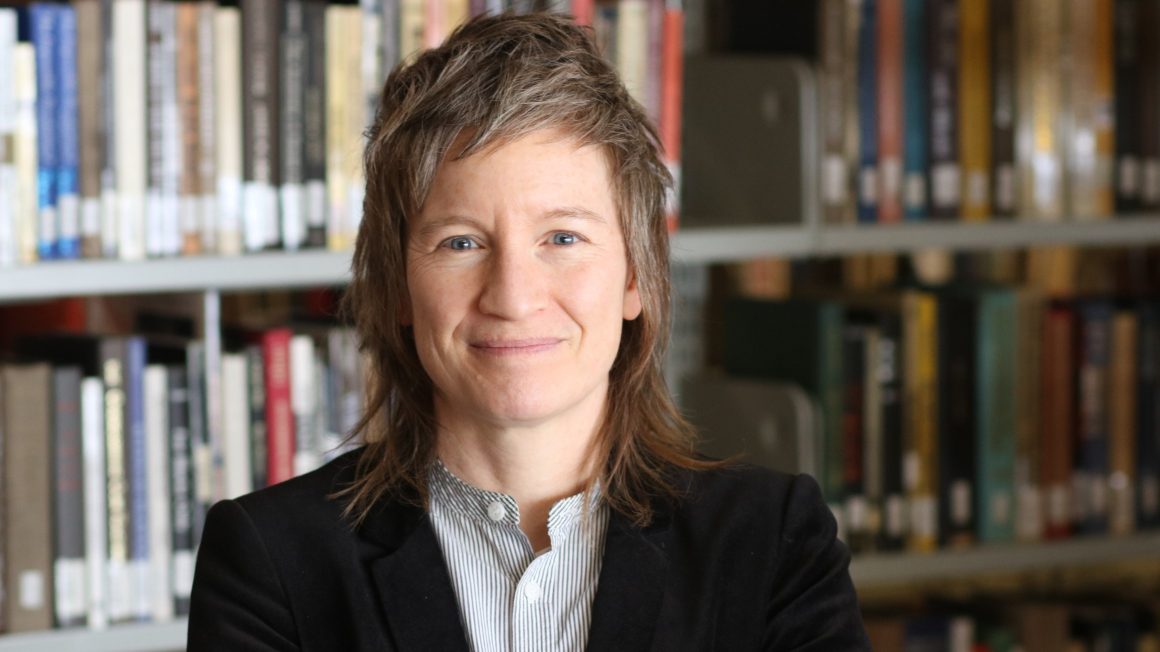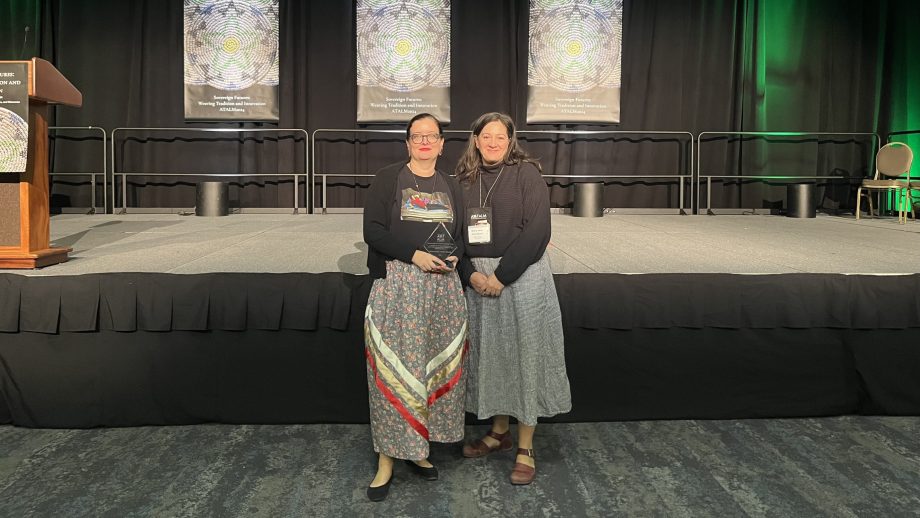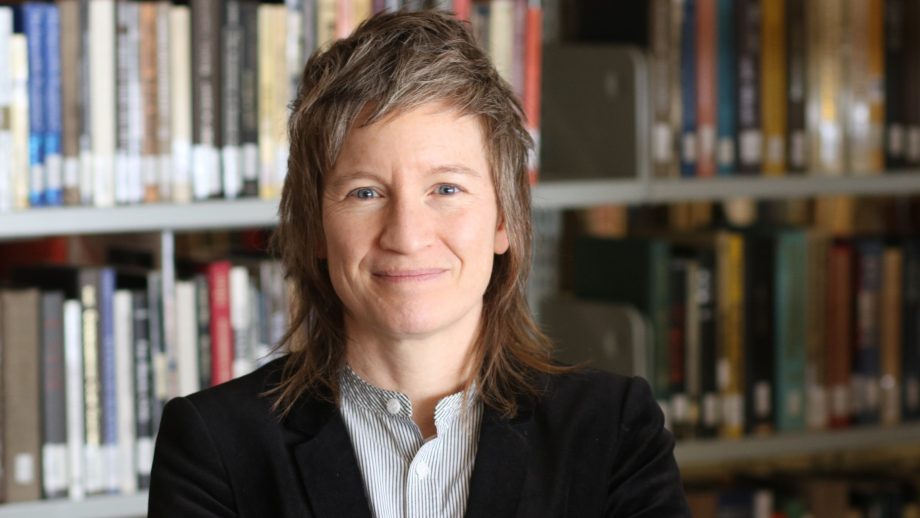Women’s and Gender Studies Professor Dr. Angela Failler will continue her internationally-recognized research into public memory and the afterlife of the 1985 Air India bombings, thanks to the federal government’s renewal of her appointment as Tier 2 Canada Research Chair (CRC) in Culture and Public Memory, an award valued at $500,000 over a five-year term.
This topic remains timely and relevant for its focus on how practices of remembrance and memorialization might be used to grapple with traumatic loss.
Dr. Angela Failler
“The bombings were an incident of mass violence and transnational scope that continues to have social and political resonance in and beyond Canada,” said Failler. “The renewal of my CRC term will allow me to further this research, including collaborations with other scholars and artists, some of whom lost relatives in the bombings.”
Failler is interested in ways that people find critical hope through expressions of remembrance that acknowledge the past as inherently connected to the present and the future.
“This topic remains timely and relevant for its focus on how practices of remembrance and memorialization might be used to grapple with traumatic loss, and also for what it reveals about structures of racism and notions of belonging and otherness in the Canadian context,” she said.
“Dr. Angela Failler’s commitment to training students, community involvement, and collaborative research reflects the quality and significance of research undertaken at UWinnipeg,” said Dr. Jino Distasio, Vice-President, Research and Innovation. “She is well deserving of this prestigious Canada Research Chair renewal.”
Enhancing public education through collaboration
Failler is also a core team member of an international network and research project called Thinking Through the Museum (TTTM). During her first CRC term, she led TTTM through the project’s development phase. TTTM is now embarking upon a seven-year SSHRC funded Partnership Grant project, which Failler co-leads with researchers at Concordia, Carleton, and McGill University. This second phase builds connections between a global network of university, museum, and community partners in Canada, Poland, the Netherlands, South Africa, and the United States.
The project’s key research question is based in collaborative methodology: How might scholars, museum curators, and members of marginalized groups, working in sustained collaboration, enhance public education on contentious histories, and redress their present-day legacies?
Failler co-leads one of TTTM’s research clusters, Museum Queeries, with Concordia University art historian Dr. Michelle McGeough and UWinnipeg English scholar Dr. Heather Milne. Museum Queeries prioritizes Two-Spirit, lesbian, gay, bisexual, transgender, transsexual, and queer (2S+LGBTTQ) contributions and interventions into museums and museum studies in order to help change the face of museums, cultural heritage sites, and other public memory institutions and improve responsiveness to calls for social justice.
Failler’s CRC renewal will also allow her to continue serving as director of UWinnipeg’s Centre for Research in Cultural Studies (CRiCS), which she founded in 2018.
“Even amid the pandemic, CRiCS has been an incredibly valuable space,” she said. “It supports the work of cultural studies researchers and students, and reminds us of the intellectual community we have on our own campus. CRiCS has, no doubt, put UWinnipeg on the map as a place where impactful cultural studies research happens.”
Across her various projects, Failler commits a significant amount of energy to mentorship, helping students and emerging scholars build research skills. She supervises undergraduate and graduate Research Assistants, as well as post-graduate Research Coordinators, instilling a passion for research that digs deep into vital, and sometimes difficult, histories. In 2012, Failler received the Clifford J. Robson Memorial Award for Teaching Excellence in recognition of her commitment to teaching and mentorship, which she will continue to sustain through her CRC term, in and beyond the classroom.
Meet UWinnipeg’s Canada Research Chairs
UWinnipeg’s eight Canada Research Chairs (listed in alphabetical order) are world-class scientists and scholars from diverse backgrounds who are working on new discoveries and innovations that help our environment, health, communities and economy thrive:
Dr. Ryan Bullock
Canada Research Chair in Human-Environment Interactions
Dr. Nora Casson
Canada Research Chair in Environmental Influences on Water Quality
Dr. Jaime Cidro
Canada Research Chair in Health & Culture
Dr. Angela Failler
Canada Research Chair in Culture and Public Memory
Dr. Jeff Martin
Canada Research Chair in Fundamental Symmetries in Subatomic Physics.
Dr. Mary Jane Logan McCallum
Canada Research Chair in Indigenous People, History and Archives
Dr. Julie Nagam
Canada Research Chair in Indigenous Arts, Collaboration and Digital Media
Dr. Christopher Wiebe
Canada Research Chair in Quantum Materials Discovery
“I am very lucky to be among this particular cohort of CRCs at UWinnipeg, from whom I am learning a great deal,” said Failler. “It is a privilege and an honour to hold a CRC position at The University of Winnipeg and I am especially grateful for the opportunity it affords me to pursue questions that matter to me and others.”
The Canada Research Chairs (CRC) Program enhances research excellence in Canada in the humanities, social sciences, health sciences, natural sciences, and engineering. It is a tri-agency initiative of the Social Sciences and Humanities Research Council (SSHRC), the Natural Science and Engineering Research Council (NSERC), and the Canadian Institute of Health Research (CIHR).





